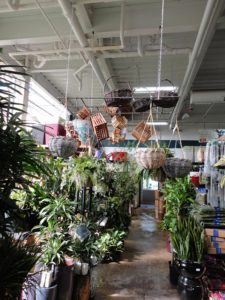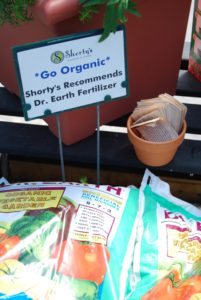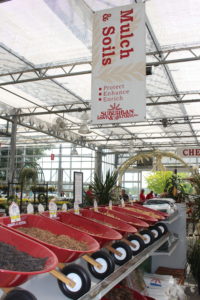Tough Love
March in Chicago is cold and dreary, but spring still seems so close… Soon there will be green grass instead of slushy snow, and the jealousy of those lucky people in warmer climates will lessen as the sun shines again. But arriving with the sun and warmer weather will be the pests! Gardeners have always been bothered by a variety of pests, from tiny aphids to wandering deer. The dilemma between the desire to protect one’s garden and the question of whether doing so will cause harm to the environment is a valid one. But with eco-friendly pest control, the gardener can overcome both pests and their worries surrounding the use of harsh chemicals.
The U.S. Environmental Protection Agency (EPA) defines a pesticide as “any substance or mixture of substances intended for: preventing, destroying, repelling or mitigating any pest” on its website, www.epa.gov/pesticides. Pesticides can be directed toward insects, unwanted animals, fungi, weeds and microorganisms.
“By their very nature, most pesticides create some risk of harm… because they are designed to kill or otherwise adversely affect living organisms,” EPA’s website states. “At the same time, pesticides are useful to society. Pesticides can kill potential disease-causing organisms and control insects, weeds and other pests.” As consumers are growing more environmentally conscious, retailers have begun to market more eco-friendly options for pest control. Clearly, there are instances when traditional pesticides are necessary; however, eco-friendly pest control presents a viable and safe alternative.
Provide Education and Demonstration
One company that offers eco-friendly pest control is I Must Garden. The company is based in North Carolina but sells products to many locations across the nation and also through their website. Marilyn Cox, I Must Garden’s product developer, says the most common question customers ask businesses carrying I Must Garden’s Deer Repellent and Rabbit Repellent is, “Does it really work?” The repellents are made from a mixture of natural ingredients, including essential botanical oils, eggs and garlic. Cox says these combinations present a pleasant-smelling product from the human perspective that effectively keeps deer out of the garden.
Demonstrations about how to spray a plant are great, especially for newer products. Not only will customers gain a useful skill, but they will also experience first-hand the product’s benefits, such as I Must Garden’s lack of unpleasant odor. I Must Garden fully guarantees all products, a great selling point because customers who are initially uncertain will be more willing to try a new product if they know that they will be refunded if they’re unhappy. “But we haven’t had to do that!” Cox says. “When they try it, they are actually pleasantly surprised.”
Stores will also be happy with the eco-friendly pest-control products, Cox says, as customers are likely to buy more plants if they aren’t adverse to spraying and know that pests won’t destroy plants once they arrive at home. Be sure to remember the importance of customer education. Customers need to know how often to apply repellents; Cox described a situation where the customer’s repellent had “stopped working,” only because she had not repeated spraying in an entire season. As with any product, improper or insufficient use will hamper the effectiveness of these repellents.
Compare and Contrast
Another company leading the charge for eco-friendly pest control is Bug- Band. These pest control products are made with Geraniol, and BugBand advertises on its website the effectiveness of its products against a variety of insects, including mosquitoes, fleas, no-see-ums, gnats, ticks and fl ies. Geraniol “is a powerful ingredient extracted from geranium oil through a unique refi ning process” and has “no known toxicity to animals or wildlife,” according to the website.
To publicize the effectiveness and availability of their eco-friendly pest control, BugBand’s public relations department works to get out information about products and visits many distributor-geared trade shows. Their products are described as an alternative to DEET-based products because BugBand products do not have the characteristic flammability or solvent-like qualities. Geraniol is intended to repel insects before they land through its ability to give off a “diluted vapor into the air stream.”
BugBand President Dan Ritter says customers in the gardening industry are often more willing to try green products than the general consumer simply because of their general environmental interest and concern for healthy products. Ritter says the company’s current bestseller is a reusable wristband that emits vapors and form a shield around the area, keeping pests away from people. He explains that many companies have been offering similar products for years, such as citronella candles, but past products were often much weaker.
A Diverse Selection
Customers often fear pesticides but still worry about how they can effectively combat pests. This makes it very important to have information available for their use and to help them to make an educated decision when picking a pest-control method. Eco-friendly pest control has evolved quite a bit in the past years and can present a viable alternative to harsh chemicals for protecting plants.
As can be seen just from the examples in this article, you can find ecofriendly pest control for just about any pest. How better to welcome spring than by respecting the environment and keeping pests out of your garden at the same time? Neither the animals nor your plants will be harmed.

















 Videos
Videos





